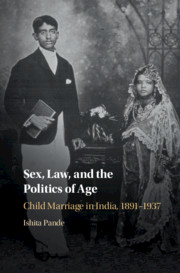- From Process, the blog of the Organization of American Historians: "The American Public’s Role in Financial Regulation," by Christopher Shaw.
- Via Nursing Clio: An interview with Jesse Olszynko-Gryn, author of A Woman’s Right to Know: Pregnancy Testing in Twentieth-Century Britain.
- Paula J. Giddings will discuss “The Prescient Life of Ida B. Wells,” “a crusading journalist and pioneer in the fights for women’s suffrage and against segregation and lynchings” in conversation with FDR Library Director William Harris, in the Library’s Henry A. Wallace Center at 6:00 p.m. ET on Tuesday, March 26, 2024, and streaming on YouTube and Facebook. Register here.
- Congratulations to John Cairns, University of Edinburgh, upon the announcement that he is to receive an honorary doctorate from the University of Glasgow.
- Heikki Pihlajamäki, Professor of Comparative Legal History at the University of Helsinki, has “won the Gad Rausing Prize for Outstanding Humanities Research. Pihlajamäki was awarded the prize, worth 1.5 million Swedish krona.” More.
- Frances M. Clarke, University of Sydney, is the first Australian to win the Gilder Lehrman Lincoln Prize, which “rewards the finest scholarly work published in the prior year in English on Abraham Lincoln, the American Civil War soldier, or the American Civil War era.” She and her coauthor, Rebecca Jo Plant, University of California, San Diego, won the prize for Of Age: Boy Soldiers and Military Power in the Civil War Era (Oxford University Press).
- Reshaping American Life: Today’s Supreme Court in Historical Context, and its Potential Impact on our Future, a discussion/debate between Berkeley Law School Dean Erwin Chemerinsky and Case Western Reserve Law Professor Jonathan Adler, moderated by California Supreme Court Justice Carol Corrigan, will take place on Tuesday, April 23, 2024, 12:15 p.m. (PT) / 3:15 p.m. (ET). It is to last 75 minutes and will take place in-person and virtually. Register here.
- The University of Edinburgh Press seeks proposals for its new book series, New Approaches to Ancient Greek Institutional History. The series editors are Mirko Canevaro, Edward Harris, and David Lewis.
- ICYMI: "Maricopa County Honors Public Defenders and Landmark Legal Victories [such as Gideon v. Wainwright] During 'Public Defense Recognition Week'” (Hoodline). "How Virginia Used Segregation Law to Erase Native Americans" (Time--the new home of Made by History).
Weekend Roundup is a weekly feature compiled by all the Legal History bloggers.

).png)


